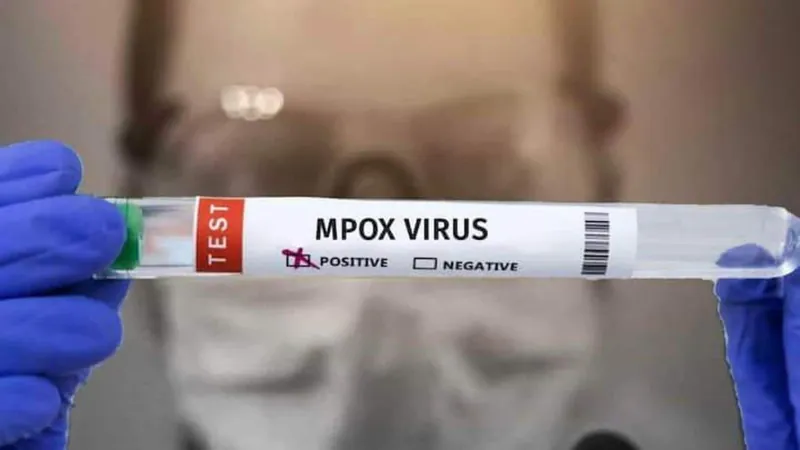
Belgium Becomes 8th Non-African Nation to Report New Mpox Variant Amidst Alarming Escalation in Africa
2024-12-24
Author: Arjun
Belgium Becomes 8th Non-African Nation to Report New Mpox Variant Amidst Alarming Escalation in Africa
The World Health Organization (WHO) has raised significant alarms regarding the worsening mpox situation across Africa, labeling it as "especially concerning." This year alone, there have been a staggering 13,769 reported cases of mpox on the continent, with the Democratic Republic of Congo (DRC) bearing the brunt, accounting for 9,513 of those infections. The clade 1b variant, which emerged in the DRC last year, primarily spreads via person-to-person contact, particularly during sexual activities.
Understanding Mpox Transmission and Symptoms
Mpox, a viral infectious disease, manifests through notable symptoms including painful lesions, fever, and swollen lymph nodes. These symptoms typically endure for a duration ranging from two to four weeks. While the virus can initially transfer from animals to humans, its current predominant mode of transmission is through close human interactions. The WHO has observed that the dispersion of the clade 1b MPXV variant to new regions seems predominantly driven by contact among young adults, often linked to sexual encounters.
Growing Concerns: Mpox Transmission Among Children in African Communities
Worryingly, mpox is not confined to adults; recent trends indicate a troubling spread among children in various African nations, including the DRC and Uganda. This alarming development can be traced back to its initial transmission through sexual activities, which later transitioned into non-sexual close contact, further propelling the outbreak. The WHO has noted a concerning "progressive shift in age and sex distribution," with a rising number of cases now being reported among children.
Global Implications and Rising Cases Outside Africa
As Belgium becomes the eighth non-African country to identify this new mpox variant, public health officials worldwide remain on high alert. This underscores the global implications of the outbreak in Africa and necessitates stringent monitoring and preventive strategies to control its spread. With more and more countries reporting infections, international cooperation and immediate action are critical in mitigating the developing crisis.
In such a rapidly evolving situation, public awareness and understanding of mpox are more crucial than ever. Health authorities recommend practicing safe behaviors, especially in light of emerging data on transmission routes. The world stands at a pivotal moment in this health crisis, making it imperative that communities stay informed and proactive to prevent further escalation.
Stay tuned for more updates as the situation unfolds!




 Brasil (PT)
Brasil (PT)
 Canada (EN)
Canada (EN)
 Chile (ES)
Chile (ES)
 España (ES)
España (ES)
 France (FR)
France (FR)
 Hong Kong (EN)
Hong Kong (EN)
 Italia (IT)
Italia (IT)
 日本 (JA)
日本 (JA)
 Magyarország (HU)
Magyarország (HU)
 Norge (NO)
Norge (NO)
 Polska (PL)
Polska (PL)
 Schweiz (DE)
Schweiz (DE)
 Singapore (EN)
Singapore (EN)
 Sverige (SV)
Sverige (SV)
 Suomi (FI)
Suomi (FI)
 Türkiye (TR)
Türkiye (TR)